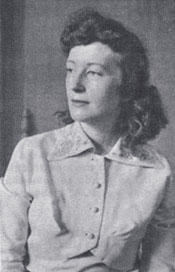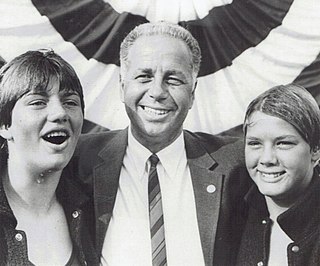A tort, in common law jurisdictions, is a civil wrong that causes a claimant to suffer loss or harm resulting in legal liability for the person who commits the tortious act.
In law, standing or locus standi is the term for the ability of a party to demonstrate to the court sufficient connection to and harm from the law or action challenged to support that party's participation in the case. Standing exists from one of three causes:
- The party is directly subject to an adverse effect by the statute or action in question, and the harm suffered will continue unless the court grants relief in the form of damages or a finding that the law either does not apply to the party or that the law is void or can be nullified. This is called the "something to lose" doctrine, in which the party has standing because they will be directly harmed by the conditions for which they are asking the court for relief.
- The party is not directly harmed by the conditions by which they are petitioning the court for relief but asks for it because the harm involved has some reasonable relation to their situation, and the continued existence of the harm may affect others who might not be able to ask a court for relief. In the United States, this is the grounds for asking for a law to be struck down as violating the First Amendment, because while the plaintiff might not be directly affected, the law might so adversely affect others that one might never know what was not done or created by those who fear they would become subject to the law – the so-called "chilling effects" doctrine.
- The party is granted automatic standing by act of law. Under some environmental laws in the United States, a party may sue someone causing pollution to certain waterways without a federal permit, even if the party suing is not harmed by the pollution being generated. The law allows them to receive attorney's fees if they substantially prevail in the action. In some U.S. states, a person who believes a book, film or other work of art is obscene may sue in their own name to have the work banned directly without having to ask a District Attorney to do so.
Chisholm v. Georgia, 2 U.S. 419 (1793), is considered the first United States Supreme Court case of significance and impact. Given its date, there was little available legal precedent. The case was superseded in 1795 by the Eleventh Amendment.
A legal person is any human or non-human entity, in other words, any human being, firm, or government agency that is recognized as having privileges and obligations, such as having the ability to enter into contracts, to sue, and to be sued.
A trade name, trading name, or business name is a pseudonym frequently used by companies to operate under a name different from their registered, legal name. The term for this type of alternative name is a "fictitious" business name. Registering the fictitious name with the relevant government body is often required.

Crocodile Dundee is a 1986 Australian-American action comedy film set in the Australian Outback and in New York City. It stars Paul Hogan as the weathered Mick Dundee. Hogan's future wife Linda Kozlowski portrayed Sue Charlton. Inspired by the true-life exploits of Rod Ansell, the film was made on a budget of under $10 million as a deliberate attempt to make a commercial Australian film that would appeal to a mainstream American audience, but proved to be a worldwide phenomenon.

Mary Sue Hubbard was the third wife of L. Ron Hubbard, from 1952 until his death in 1986. She was a leading figure in Scientology for much of her life. The Hubbards had four children; Diana, Quentin, Suzette, and Arthur.
A number of cases were tried before the Supreme Court of the United States during the period of the American Civil War. These cases focused on wartime civil liberties, and the ability of the various branches of the government to alter them. The following cases were among the most significant.

Atlanta Bread Company is a privately owned bakery cafe chain established in the United States in 1993. By 1995, the owners began franchising and expanding across the country.

Crocodile Dundee II is a 1988 Australian-American action comedy film. The second of the Crocodile Dundee films, it is a sequel to Crocodile Dundee (1986) and was followed by Crocodile Dundee in Los Angeles (2001). Actors Paul Hogan and Linda Kozlowski reprise their roles as Mick Dundee and Sue Charlton, respectively; here shown opposing a Colombian drug cartel.

The United States Reports are the official record of the rulings, orders, case tables, in alphabetical order both by the name of the petitioner and by the name of the respondent, and other proceedings of the Supreme Court of the United States. United States Reports, once printed and bound, are the final version of court opinions and cannot be changed. Opinions of the court in each case are prepended with a headnote prepared by the Reporter of Decisions, and any concurring or dissenting opinions are published sequentially. The Court's Publication Office oversees the binding and publication of the volumes of United States Reports, although the actual printing, binding, and publication are performed by private firms under contract with the United States Government Publishing Office.
Curtis Publishing Co. v. Butts, 388 U.S. 130 (1967), was a case in which the Supreme Court of the United States established the standard of First Amendment protection against defamation claims brought by private individuals.

Susan "Sue" Jane Pedersen, also known by her married name Susan Pankey, is an American former competition swimmer, four-time Olympic medalist, and former world record-holder in two events.
The Federal Tort Claims Act ("FTCA") is a 1946 federal statute that permits private parties to sue the United States in a federal court for most torts committed by persons acting on behalf of the United States. Historically, citizens have not been able to sue their state—a doctrine referred to as sovereign immunity. The FTCA constitutes a limited waiver of sovereign immunity, permitting citizens to pursue some tort claims against the government.

James Moore Wayne was an American attorney, judge and politician who served as an Associate Justice of the Supreme Court of the United States from 1835 to 1867. He previously served as the 16th Mayor of Savannah, Georgia from 1817 to 1819 and the member of the United States House of Representatives for Georgia's at-large congressional district from 1829 to 1835, when he was appointed to the Supreme Court by President Andrew Jackson. He was a member of the Democratic Party.

Scientology was founded in the United States by science fiction author L. Ron Hubbard and is now practiced in many other countries.
The 1954 All England Championships was a badminton tournament held at the Empress Hall, Earls Court, London, England from 17–21 March 1954.
Susan Kay "Sue" Pitt, also known by her married name Susan Anderson, is an American former competition swimmer and world record-holder. She lived with her parents Larry and Kay of Highland Park, NJ at the time of competition.

Susan Walsh, also known by her married name Susan Stankavage, is an American former competition swimmer who won two medals at the 1982 World Aquatics Championships. She qualified for the 1980 Summer Olympics in the 100-meter backstroke, but could not compete because of their United States-led boycott of the Soviet-hosted games. She was 0.01 seconds short of qualifying for the 1984 Olympics in the same event.
Johanns v. Livestock Marketing Association, 544 U.S. 550 (2005), is a First Amendment case of the Supreme Court of the United States. At issue was whether a beef producer could be compelled to contribute to beef industry advertising.














